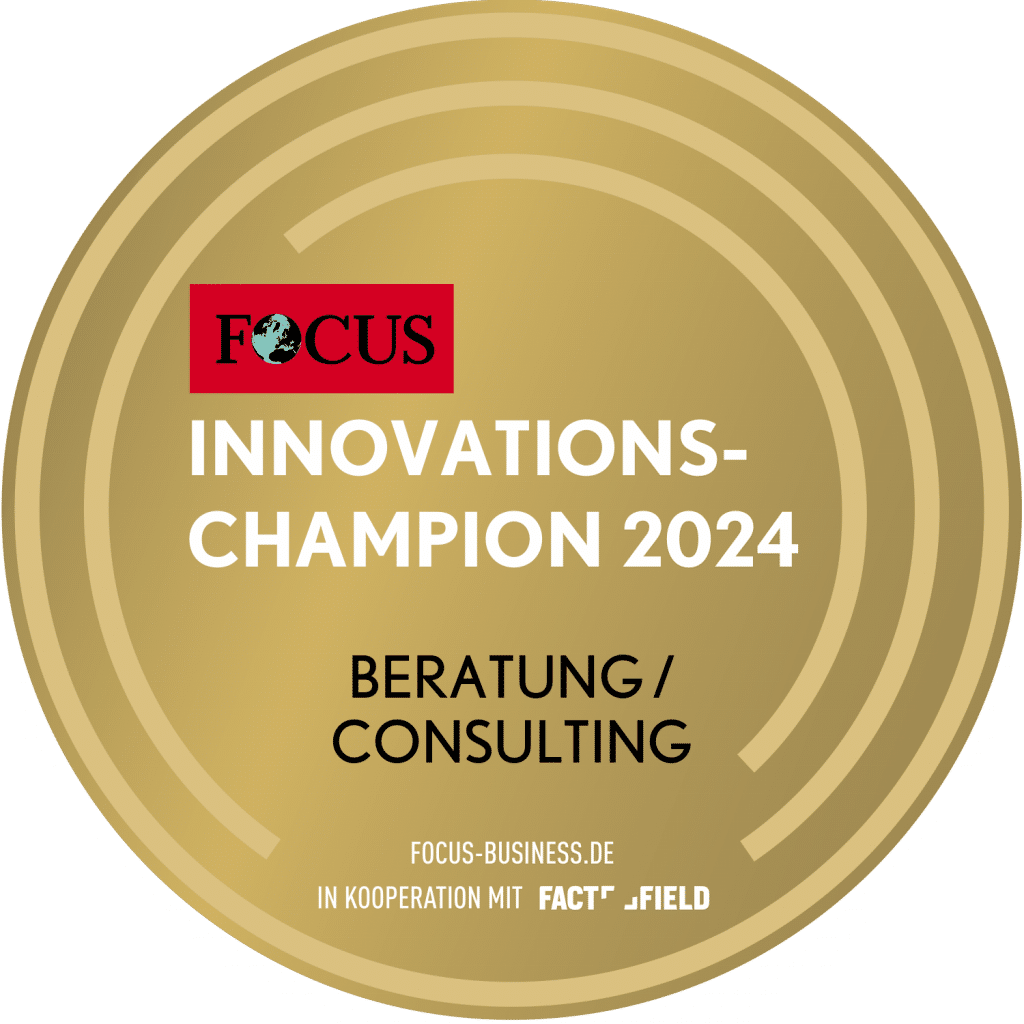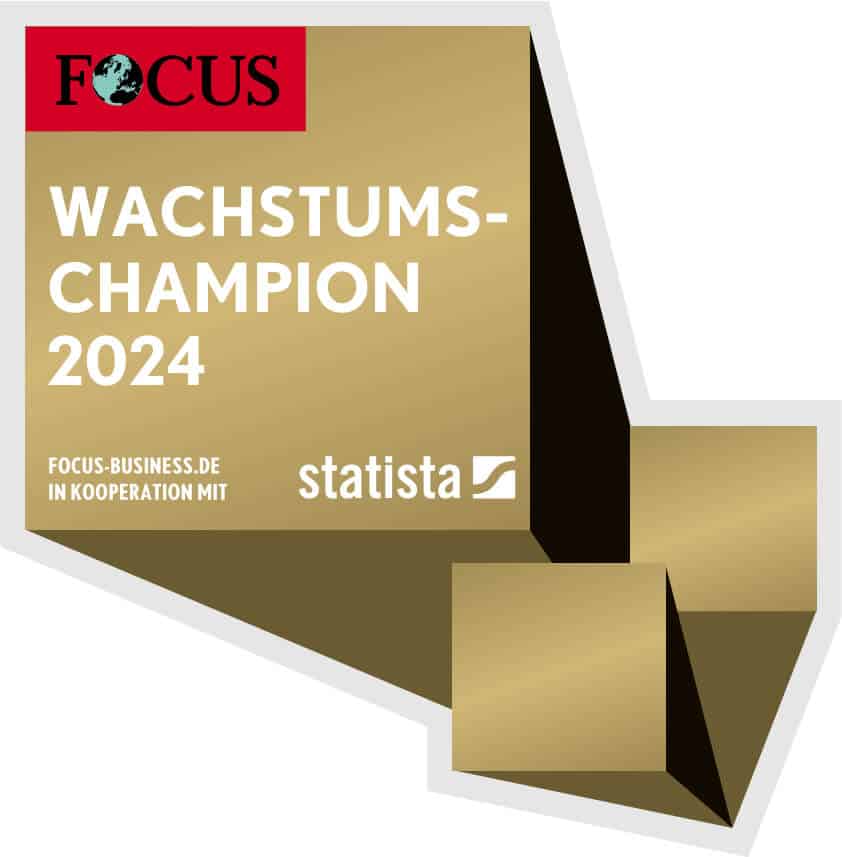Are customers more demanding today? Yes and no - Frank Bunge and Wolf Nöding, experts in customer centricity, believe that customers today can exert more power through their purchasing decisions and thus influence what companies offer. Although they do not necessarily have higher expectations, they are more aware of them and expect them to be met. In the interview, the authors of the article "Customer Experience for Strategy Development and Lean Transformation - The Solution Areas of a Successful Customer Experience Strategy" in the Volume two of the anthology on the Enterprise Transformation Cyclewhat companies need to pay attention to today when it comes to customer centricity.
Click here to go directly to part 2 of the interview with Frank Bunge and Wolf Nöding: If you want to improve customer experience, you have to think outside-in!
Customer expectations change with the world around us
Katja Heumader: Are today's customers more demanding than those of ten years ago?
Wolf Nöding: In short: yes. This is relatively easy to understand. We only have to start with our own purchasing behavior. Expectations are growing. Requirements that used to be considered "performance requirements" are now classified as "basic requirements". An important benchmark is the positive experiences we have in everyday situations. Take, for example, checking in for flights via a mobile app - a few years ago, this was still considered a certain extra. Today, airline customers take it for granted. Companies that focus on supporting the convenience of their customers are in a constant process of innovation and optimization, thereby improving their customer relationships.
Frank Bunge: I don't believe that today's customers are really more demanding. They are just more aware of their demands and are more vocal about them. We live in a VUCA worldCustomer expectations change just as quickly as the environment around them.
Let's just look at the past coronavirus year, for example the hotel industry. In previous years, trips could be planned with a high degree of certainty. Cancellation deadlines were of secondary importance. This predictability was significantly reduced in 2020 and may remain so in 2021. Flexibility is required. Customers therefore attach great importance to flexibility when canceling. Within the same framework, the hotel industry would like to enforce more security and, in fact, less favorable cancellation policies. However, customers will only book with them if they can cancel at short notice without having to pay. The hotels that guarantee this flexibility will therefore be booked. Customer power has increased significantly. The overall demands have not.
Customer centricity also means recognizing unconscious wishes
KH: Why is it no longer enough to offer a top product or an excellent service? What else constitutes customer centricity?
FB: A customer-centric company must recognize and meet the expectations and needs - even the implicit ones - of its customers throughout the entire life cycle of its products. Only if the company identifies and fulfills the unspoken, hidden expectations at every touchpoint will it inspire its customers and thus retain them in the long term.
A single negative customer experience is enough to call a customer's purchasing decision into question. And out of 100 dissatisfied customers, only six complain. 94 simply leave. What's more, customer satisfaction, i.e. meeting the expectations that the customer openly expresses, is only enough to prevent the customer from actively leaving.
WN: In many cases, a top product is still the most important quality feature. But what does this mean for a product that, from the customer's perspective, is not only perceived through pure sales, but also in earlier customer journey phases such as the "inspiration" and "advice" phase? Let's take our hotel example again: when booking hotels online, the hotel comparisons on the respective platforms are already an important area of experience. The positive platform experiences are more important here. They have a very strong impact on sales and conversion.
KH: What elements make up the customer experience?
FB: In my view, customer experience is primarily an interplay of various factors: customer experience itself with the holistic focus on the customer as described above. It is also important to focus on the user of the product or service - the user experience.
Let's think about the experience of buying online. The majority of customers abandon their purchases right from the first steps if they only want to check whether the store sells the products they expect. If they then have to disclose too much information about themselves or if the process is too complicated, they jump off - without the supplier even noticing that there is a prospective customer. Inadequate user experience continues throughout the entire process and leads to bounces at the various touchpoints. It is therefore not enough to have a product that basically fulfills the expected functionalities. It must also be easy to use. The third component is the company's own employee experience. Because only enthusiastic employees will also inspire their customers.
WN: When we talk about "elements of customer centricity", we are probably referring to customer experience management as an active area of impact. This is because the product experience that the end customer perceives always and continuously takes place at every touchpoint - regardless of how well the respective company supports it. Customer experience management provides companies that pursue a customer-centric strategy with a framework for continuously improving important factors related to the product and service experience. Important areas here are "customer insight", "customer intelligence" and the development of new "experience solutions" for end consumers. A central requirement is to bring these three main areas into a common context in order to generate the greatest possible business value.
KH: What developments are contributing to the fact that the customer experience is becoming increasingly important for companies?
WN: Among many others, the following three developments are critical to the success of most companies:
- Positioning: the need to further develop the existing business model
- Market differentiation: shorter intervals Service and product adjustments to new customer requirements
- Optimization and automation of customer processes to save costs.
FB: Companies are finding it increasingly difficult to stand out from the crowd with their actual products or services. Technical innovations are quickly overtaken by the competition. One year later, it is already the competitor who is ahead with his innovation. As described above, customers are not more demanding per se, but they are aware of (many of) their demands and expect them to be met. In addition, there are many unconscious expectations and needs that companies should identify. Because only companies that recognize and meet these expectations in the long term will survive in the market - not from me, but from the former marketing director of the Otto Group.
KH: You yourself write that emotions play an important role in the decision for one provider or another. Are there nevertheless objective criteria for a positive customer experience?
FB: The degree to which expectations are met can be measured objectively. The controversial but still most widely used indicator here is the Net Promotor Score (NPS), supplemented by the somewhat newer Net Easy Score (NES). Here, customers indicate on a scale of 0-10 how likely they are to recommend the supplier to others. The NPS is about the product or service itself and the NES is about the supplier's interaction with the customer and how easy it was to communicate with the supplier.
WN: Emotions and objective criteria are very often closely related. If a customer feels confident in the purchasing process, this usually has a positive effect on conversion.
In the context of objective criteria, the following are often cited as indicators of a positive customer experience: NPS, CSI, FTR (first time right), churn rate reduction, positive or negative online feedback, brand reputation and many more. These are typically very product-specific.
If you want to place the aforementioned indicators for customer experience in the context of business outcomes, you define relevant OKS (Objective Key Results) in order to achieve comparable results.
KH: Dear Mr. Bunge, dear Mr. Nöding, thank you for the insightful discussion about the future of customer centricity.
The interview with Frank Bunge and Wolf Nöding was conducted by Dr. Katja Heumader for the TCI editorial team.
"Mastering transformation projects with the Enterprise Transformation Cycle" - published August 2020
The Transformation Consulting International has been supporting national and international transformation projects in companies for many years. Based on this extensive wealth of experience in practical implementation, the second volume entitled "Transformationsvorhaben mit dem Enterprise Transformation Cycle meistern: Projekte erfolgreich planen, durchführen und abschließen" (Mastering transformation projects with the Enterprise Transformation Cycle: successfully planning, implementing and completing projects) has been published by the renowned Springer-Verlag. As a continuation of the first volume, it takes into account further wishes and suggestions from readers and presents concrete transformation projects and situations in which TCI experts use the ETC in their daily work. The editors of this 500-page volume are Mario A. Pfannstiel and Peter F.-J. Steinhoff. You will find numerous theoretical and conceptual contributions as well as practical case studies on the "Enterprise Transformation Cycle".
Source cover image: © bnenin | Adobe Stock


